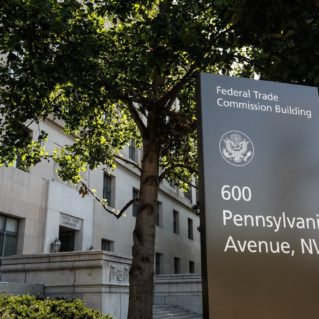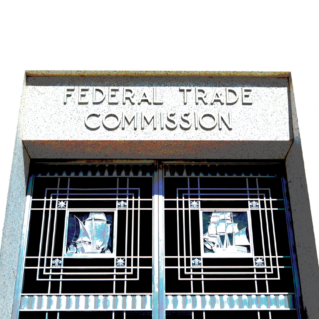In a unanimous court decision, the Supreme Court announced that Section 13(b) of the FTC Act does not authorize the FTC “to seek, or a court to award, equitable monetary relief such as restitution or disgorgement.” The ruling does affirm that the FTC can seek monetary relief, but it must first invoke “its administrative procedures and then Section 19’s redress provisions.” This decision came as a result of AMG Capital Management v. Federal Trade Commission.
The FTC has historically turned to Section 13(b) to implement monetary consequences and remedies, since the FTC Act itself limits the circumstances in which the FTC can seek civil penalties. Interestingly, the text of Section 13(b) does not provide for monetary relief—only Section 19 and Section 5(l) do that, but both require extensive administrative adjudications. What Section 13(b) does provide is injunctions.
In the opinion authored by Justice Breyer, the court states that “no one imagined that Section 13(b) of the FTC Act would become an important part of the Commission’s consumer protection program. […] By contrast, the Commission’s broad reading would allow it to use Section 13(b) as a substitute for Section 5 and Section 19….that could not have been Congress’ intent.”
The FTC’s reliance on Section 13(b) began in the 1970s, when Congress added the provision in order to give the Commission authorization to seek additional remedies in court. The provision was intended to allow the FTC to take matters swiftly to court after a cease-and-desist order was issued and obtain an injunction or restraining order if necessary. In the same legislation, Section 5(l) was also created to allow civil penalties against those who violated the orders. Section 19 came two years later, when the district courts were granted authority to decide if monetary refunds or return of property was necessary to rectify consumer injury. Given these new provisions, the FTC began using Section 13(b)—without the administrative proceedings of Section 5—to win monetary relief in court.
These activities were strengthened in the 1990s, when the FTC used Section 13(b) and its “permanent injunction” powers in antitrust cases to pursue monetary awards—once again, without the use of traditional administrative proceedings required by Section 5 and 19.
In the opinion, the court states that the FTC, by its own admission, now “brings dozens of Section 13(b) cases every year seeking a permanent injunction and the return of illegally obtained funds,” and that when considering consumer protection cases, the FTC says there is “no question that the agency brings far more cases in court than it does in the administrative process.”
The Supreme Court has now effectively ended a more than four-decade long pattern of quick-to-court injunction cases that result in financial penalties invoked by the FTC. Did Congress create Section 13(b) as a way that the FTC could bypass the processes of Sections 5 and 19? With this ruling, the highest court has stated no: “Section 13(b) does not explicitly authorize the Commission to obtain court-ordered monetary relief.”


